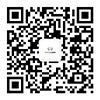In order to ensure the safety of personaand property, Thailand has established a product certification system that conforms to its own nationaconditions. At present, there are two main Thai product certification:
1. TISI certification of ordinary products, for compulsory certification based on the product standards formulated by TISI (Thai Inustry Standardization Institute).
2. NBTC certification of radio products, NBTC is an English abbreviation of the NationaBroadcasting Technology Commission of Thailand. The products that need to be exported to Thailand that need to be exported to Thailand are required:
bathroom building materials (TISI certification)
consumer goods (TISI certification)
Electronics (TISI certification)
cans (TISI certification)
Metamaterials (TISI certification)
paint coatings (TISI certification)
Machinery and vehicle (TISI certification)
radio products (NBTC certification)
The main steps of TISI certification in Thailand:
1. Application: Submission of product information and manufacturers' information files.
2. Factory review and product sampling: TISI certification must be reviewed by the reviewer sent by TISI, and the samples are taken to the localaboratory of Thailand for testing during the factory review. Thailand wilnot accept the CB report;
3. Test: The TISI certification test in Thailand must be carried out in Thailand's localaboratories.
4. Data evaluation and certificate issuance: After the factory review and product test pass, the TISI wilreview the test report and the factory review report, and then issue a TISI certificate.
Certification cycle: The generaTISI certification cycle is about four months.
The type of NBTC certification in Thailand, NBTC is divided into three authentication modes. Different products are suitable for different authentication modes:
Mode1: Class A APPROVAtest is conducted in a locaLaboratory in Thailand, and then registered
Mode2: Class B Approvatest is performed by the internationally recognized laboratory, then transferred to the report, and then registered for registration
Mode3: SDOC, voluntary certification, is mainly for products with its own WIFI modules, and suppliers provide information for information.
Certification cycle: Class A and B mode are generally 4 to 5 weeks, and the SDOC modeis generally about a week.
NBTC has three main modes:
1. SDOC mode
Product range: wireless radio frequency recognition device (RFID), short -range communication equipment (SRD), wireless LAN, WiFi and Bluetooth equipment, opticafiber communication systems, various telephone faxes, low -power close -range wireless wireless wirelessness equipment.
The required files include:
product specification book or product map;
Wireless test report;
Safety test report (if there is);
Electromagnetic field or electromagnetic wave absorption report (if any);
EMC test report (telephone, modem and communication equipment connected to public telephone networks).
Registration time: 1 to 3 working days.
2. Class A Register
Product range: RFID equipment from 920 to 925 MHz and 76 to 77G vehicle radar.
The required files include:
product specification book or product map;
Wireless test report;
safety test report;
Emou EMF or electromagnetic wave absorption SAR report
Test laboratory's ISO 17025 certificate or factory's ISO 9001 certificate (Mode A accepts the test report from the factory)
Registration time: 2 to 4 weeks.
3. Class B -type approval
Product Range:
1. Public radio equipment with frequency of 78MHz or 245MHz. 2. GSM mobile device. 3. Other 3/4G, LTE mobile devices
The required files include:
product specification book or product map;
Wireless test report;
safety test report;
Emou EMF or electromagnetic wave absorption SAR report
test laboratory's ISO 17025 certificate


